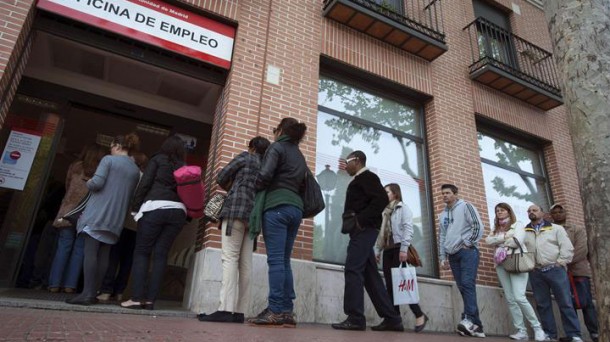Business
Crisis-hit Europe
Germany sees surge in immigration from Spain, Italy and Greece
Reuters
Frankfurt
The Federal Statistics Office said on Tuesday that 1.081 million immigrants flocked to Germany last year, up 13 percent from 2011 and the highest number since 1995.
-

Spain, Italy and Greece are struggling with recession and high unemployment. Photo: EFE
An influx of people from crisis-hit southern European countries like Spain, Italy and Greece has led to the biggest surge in German immigration in nearly 20 years.
The Federal Statistics Office said on Tuesday that 1.081 million immigrants flocked to Germany last year, up 13 percent from 2011 and the highest number since 1995.
Leading the way were arrivals from eastern countries that joined the EU in 2004 or 2007, and those from southern euro zone members struggling with recession and high unemployment as a result of the currency bloc's three-year old debt crisis.
The number of immigrants coming from Spain, Greece, Portugal and Italy, for example, surged by between 40 and 45 percent compared to the prior year, although the total inflow from these countries remains well below that from Poland and Romania.
"The rise in immigration from EU countries hit by the financial and debt crisis is particularly strong," the Statistics Office said.
Germany has been a rare pillar of strength during the crisis, benefitting from deep structural reforms introduced a decade ago, competitive small-and-medium sized companies and record low interest rates resulting from its safe haven status.
Unemployment, at 6.9 percent, is hovering just above a post-reunification low. By contrast, more than one in four workers in Spain and Greece are without a job, and youth unemployment in these countries is close to 60 percent.
This has made Germany, Europe's largest economy, an increasingly attractive destination, despite barriers like the language.
Demographic crunch
Still, Reiner Klingholz of the Berlin Institute for Population and Development, said rising immigration from within Europe was not a long-term solution to Germany's own demographic problems.
Germany has one of the lowest birth rates in Europe and an ageing population that is expected to begin weighing heavily on its social security and healthcare systems from the end of the decade.
"In the short term this can help. But in all likelihood, many of these people from southern Europe will return to their country of origin as soon as the economic situation there improves," Klingholz said.
"What Germany really needs to do is attract workers from outside of Europe. But government policies are not geared for that."
The data showed that 42,167 Italians, 34,109 Greeks and 29,910 Spaniards moved to Germany in 2012. That compared to 176,367 from Poland and 116,154 from Romania, the countries with the largest immigration flow.
Arrivals from eastern Europe have risen sharply since May 2011, when German restrictions on the free movement of labour from recent EU joiners in the region ended.
The net inflow of immigrants to Germany - the difference between the number of people coming into the country and those leaving - was 369,000 last year, also the highest level since 1995.
The Statistics Office said that three-quarters of the immigrants who came to Germany last year ended up in five of the country's 16 states, with Bavaria, North Rhine-Westphalia and Baden-Wuerttemberg registering the largest number of arrivals.
top stories



-
news
New anti-eviction law
Andalucia begins proceedings to seize confiscated houses from banks
-
news
London attack
British police ponder conspiracy after soldier murder
-
Sport
Giro d'Italia
Nibali tightens grip on overall lead after stage victory
-
Sport
Spanish soccer league
Real Sociedad, Valencia resume duel for last Champions League ticket
-
Sport
Giro d'Italia
Nibali tightens grip on overall lead after stage victory
© EITB - 2024 - Privacy Policy - Legal disclaimer - Cookie Policy - Cookie settings


